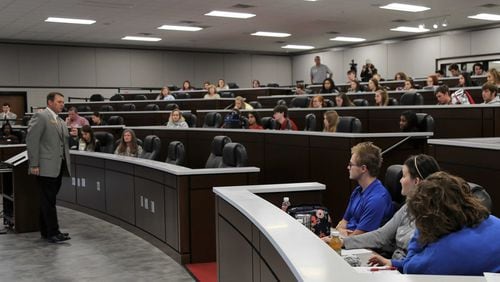Georgia Southwestern State University announced a program Monday that will offer scholarships starting next fall for first-year students in 56 southwest Georgia counties impacted by Hurricane Michael.
“Hurricane Michael devastated much of our state, with Southwest Georgia taking the brunt of the impact,” said the university’s president, Neal Weaver. “In restructuring GSW’s scholarship granting process, we wanted to develop a program that both prioritizes the students and families of Southwest Georgia and supports academic excellence. We believe the ‘Southwestern Promise’ scholarship program does just that.”
VIDEO: More on colleges
The storm was one of the most powerful hurricanes to strike southwest Georgia in recent memory. At least 400,000 customers - including the university - were without power, at least 127 roads were blocked, and the storm claimed the life of one child.
The scholarships will range between $1,000 and $2,000, Weaver said. Students must have at least a 3.0 grade-point average, SAT scores exceeding 1100 or ACT composite scores greater than 22 to be eligible for a $1,000 scholarship. Students must have at least a 3.0 GPA, SAT scores exceeding 1200 or ACT composite scores greater than 25 to be eligible for a $2,000 scholarship.
Tuition for in-state students taking a full load of classes was nearly $2,500 a semester this fall.
The scholarship automatically renews each year up to four years – total – for students who maintain a 3.0 GPA.
There is no deadline for those who live in the 56-county area, and no scholarship application is required. Students living outside the 56-county area are eligible to receive the scholarship based on funding availability and must apply by Feb. 1.
The funding will come from the university’s foundation and donors, officials said.
About the Author







